May 24, 2025 | 16:28 GMT +7
May 24, 2025 | 16:28 GMT +7
Hotline: 0913.378.918
May 24, 2025 | 16:28 GMT +7
Hotline: 0913.378.918
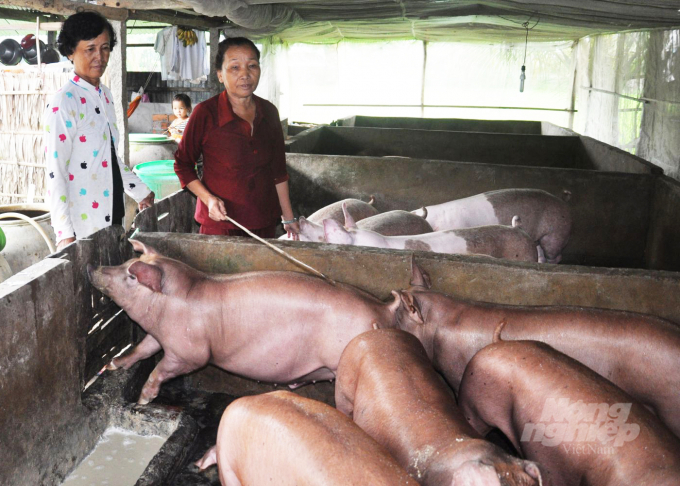
Pig farmers expect increasing meat demand in year-end market. Phot: Huu Duc.
The 4th wave of the COVID-19 pandemic heavily affected the Mekong Delta provinces for over three months. Breeders, especially farming households are severely affected as they faced three major difficulties at the same time - high prices of animal feed, slow consumption of livestock products and low prices of livestock products.
Despite those difficulties, livestock production of large-scale farms and small farms remained stable with regular supply, contributing to balancing supply and demand and stabilizing prices.
According to the Department of Animal Health Region VII, until mid-October 2021, African Swine Fever (ASF) occurred in 74 communes, 32 districts of seven provinces and cities, including Bac Lieu, Ca Mau, Kien Giang and Soc Trang, Vinh Long, Tra Vinh and Can Tho.
Currently, there are 28 communes, 17 districts, 9 provinces and cities in the region that have passed 21 days without any new cases. The number of ASF-hit communes in the first 10 months of 2021 doubled that of the same period last year.
The Mekong Delta has about 14,000 buffaloes and 496,500 cows, more than 1.4 million pigs and over 51.7 million poultry. Over the same period last year, the total number of buffaloes and cows increased by more than 4.6 per cent while the total population of pigs increased by over 14.4 per cent, total poultry increased by 0.9 per cent.
Currently, the whole region does not report any outbreak of avian influenza H5N1. In the past 10 months, the number of communes with avian influenza H5N1 decreased by over 78.5 per cent.
There is no outbreak of Foot-and-mouth disease and Blue-eared swine disease. However, dermatomyositis is occurring in 107 communes, 22 districts, 6 provinces and cities including An Giang, Can Tho City, Dong Thap, Kien Giang, Tra Vinh, Vinh Long, affecting over 3,600 cows, killing more than 400 ones.
Despite many difficulties, especially the African swine fever that caused heavy losses, pig farming in the Mekong Delta still survived and had signs of recovery.
In the provinces with strong livestock and poultry production like Tien Giang, Soc Trang, An Giang, Tra Vinh, Ben Tre or Can Tho city, breeders are gradually shifting from small-scale farming to industrial or semi-industrial farms with better disease control and food safety.
The pig farms with over 300 pigs are recovering and developing. Some poultry farms applied high-tech models with automation lines.
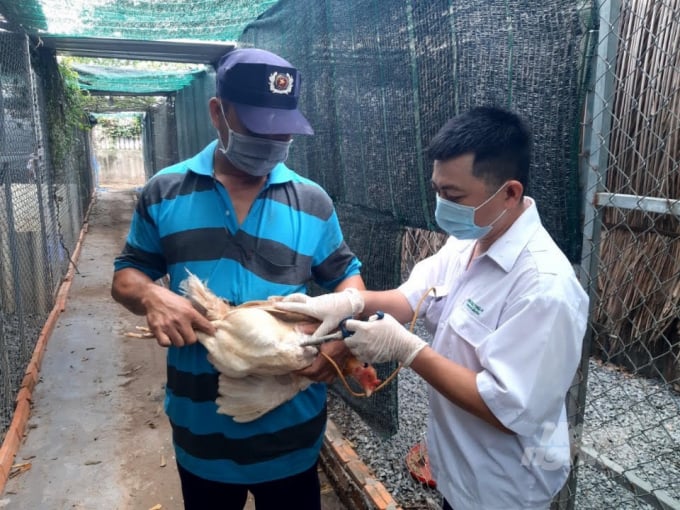
Currently, the whole Mekong Delta region does not report any outbreak of avian influenza H5N1. Photo: Huu Duc.
As one of the provinces with strengths in livestock, poultry and aquatic production, Soc Trang province implemented a project on planning a centralized slaughterhouse to ensure food hygiene and safety and protect the environment.
In addition, under the Low Carbon Agriculture Support Project, farming households got support in funding and other incentives. The province also boosted the activities of the Evergrowth Agricultural Cooperative which helped create jobs and incomes for local people. The province expanded the model of industrial chicken farms with higher economic efficiency.
Many large-scale pig farms in Soc Trang Province are raising 65 per cent of the total pigs in the province. Most of the farms meet disease prevention and control requirements, produce breeding pigs by themselves. Pig farms developed production plans to ensure the supply of pigs to the market during the Tet (Lunar new year) celebration when demand for meat usually increases.
Tan Tai Loc pig farm (Soc Trang) has prepared 300-400 sows, producing and supplying 80-120-150 breeding pigs/batch/month.
Can Tho city currently has 67 establishments that produce and trade livestock breed products. Of that, 42 establishments supply breeding pigs, 16 establishments supply pig sperms, and nine establishments produce both breeding and pig sperms. These establishments can supply about 40,000 piglets per year and 109,000 doses of pig sperm doses per year.
Estimated market demand in the Lunar New Year includes about 8,400 tons of cattle and poultry meat supplied to market including 150 tons of buffalo and beef, 6,200 tons of pork and 2,050 tons of poultry meat plus 15 million poultry eggs.
The city's supply capacity can meet about 70% of the demand for cattle meat and 78 per cent of poultry products.
Thus, to meet consumers’ demand during Tet, Can Tho City needs to import about 1,900 tons of cattle products (accounting for about 30%) and 450 tons of poultry meat (accounting for 22%), 3 million eggs (about 20%). Livestock products are mainly imported from provinces such as Vinh Long, Tra Vinh, Ben Tre, Hau Giang, and An Giang.
Centralised livestock production required for Can Tho City
Despite great potentials, Can Tho City’s livestock sector is still developing slowly due to the complicated development of diseases like African swine fever, avian influenza, skin rash on livestock and the impacts of the COVID-19 pandemic.
From the beginning of 2021 until now, the city's livestock production has maintained a total herd of over 128,880 pigs, reaching more than 99 per cent of its plan, up 8.9 per cent over the same period last year. It has over 280 buffaloes, over 4,200 cows and over 1.9 million poultry, up 0.2 per cent over the same period last year.
In the last 10 months, the total production of cattle meat reached over 27,400 tons, up 39 per cent over the same period last year, poultry meat increased over 9,300 tons, down 17.7 per cent and egg production was over 79.1 million eggs, up 1.1 per cent.
Currently, the city’s livestock production meets 70 per cent of the market demand.
Can Tho city is implementing a plan to develop high-quality pigs, chickens, ducks and beef herds in the direction of increasing the size of the herd and improving the quality of the herd.
Can Tho city currently has two livestock establishments for export. Their main exported products are salted duck eggs and salted duck egg yolks. They export about 15-20 million eggs per year to Hong Kong and Singapore.
( Le Trung Hoang, Deputy Director of Can Tho Animal Husbandry and Veterinary Sub-Department)
Translated by Hien Anh
/2025/05/22/5250-1-184853_288.jpg)
(VAN) According to a representative from the Central Retail Vietnam, Vietnamese products such as seafood, sweet potatoes, dragon fruit, coffee, and spices hold great potential in the Thai market.

(VAN) A multi-channel, multi-directional strategy only works when the agricultural value chain meets global transparency and SPS standards.
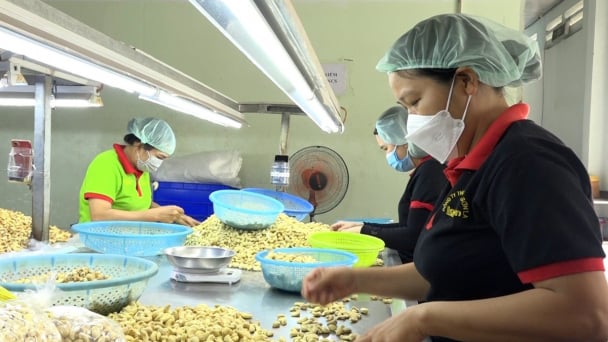
(VAN) Market expansion is a matter of survival for Vietnamese businesses amid fierce competition and global supply chain fluctuations.
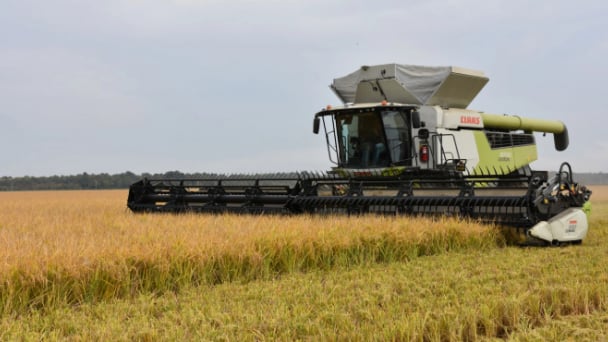
(VAN) Global market prospects for U.S. long-grain rice for the upcoming marketing year.
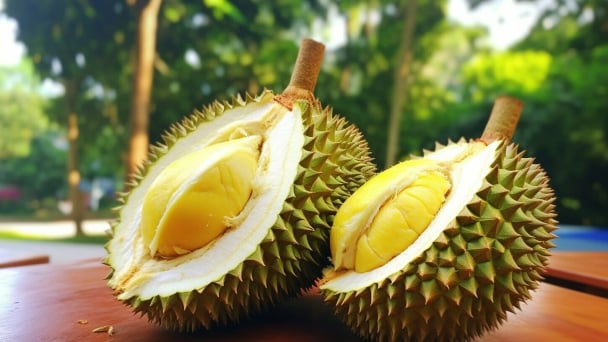
(VAN) China’s General Administration of Customs started permitting fresh durian shipments from Cambodia after a phytosanitary protocol was signed with the Cambodian Ministry of Agriculture in late April.
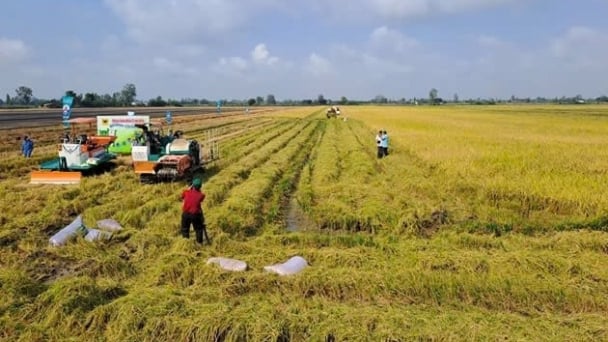
(VAN) To operate carbon market, one of the key issues is determining which types of 'commodities' meet the standards to be traded on the market.
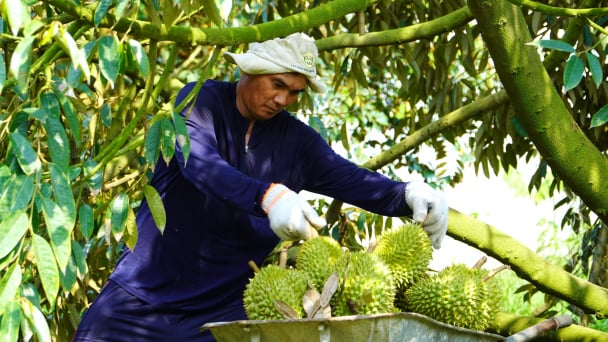
(VAN) Durian-producing localities need to coordinate more effectively with central authorities to improve the traceability, monitoring, and response systems in case of violations.